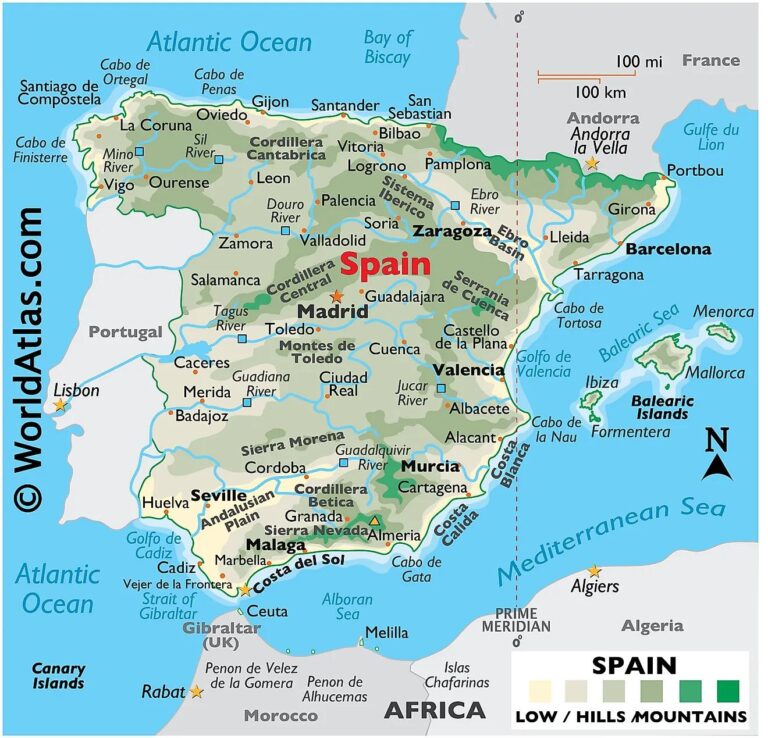Spain has recently intensified its efforts to regulate the booming holiday rental market, launching a crackdown on unlicensed AirBnB properties that has captured widespread attention. As one of Europe’s top tourist destinations, the country faces mounting pressure to balance economic benefits from short-term rentals with concerns over housing shortages and neighborhood disruption. This article provides a comprehensive overview of everything we know so far about Spain’s approach to policing AirBnB listings, the new regulations being enforced, and the impact on hosts, guests, and local communities.
Spain’s New Regulations Target Illegal AirBnB Listings to Protect Local Housing
Spanish authorities have introduced stringent measures aimed at curbing the proliferation of unauthorized short-term holiday rentals, particularly those listed on platforms like AirBnB. The new regulations empower local governments to impose hefty fines on property owners who fail to register their listings with official housing registries. This initiative comes as a response to mounting concerns over the impact of unchecked tourism rentals on the affordability and availability of permanent housing for residents in popular urban areas, including Barcelona and Madrid.
Among the key elements of the crackdown are:
- Mandatory registration: All short-term rental properties must be registered and display a valid license number.
- Enhanced monitoring: Authorities will collaborate with online platforms to identify unregistered listings using data-sharing agreements.
- Fines: Penalties for violations can reach up to €60,000 for repeat offenders.
| Region | Maximum Fine (€) | Registration Deadline |
|---|---|---|
| Barcelona | 60,000 | July 2024 |
| Madrid | 50,000 | September 2024 |
| Valencia | 45,000 | August 2024 |
Impact on Tourists and Hosts as Authorities Ramp Up Inspections Across Popular Destinations
As authorities intensify their efforts to regulate holiday rentals, both tourists and hosts are feeling the repercussions across Spain’s most visited locales. Visitors are now faced with a more restricted accommodation landscape, as properties without proper licensing are swiftly removed from platforms such as Airbnb. This crackdown aims to ensure safety standards and curb illegal rentals, but it has also led to a surge in prices and decreased availability during peak seasons. Tourists must now plan well in advance and verify listings more rigorously to avoid last-minute cancellations or unexpected charges.
Hosts, meanwhile, find themselves navigating a tougher regulatory environment, often having to meet stricter compliance requirements or face penalties. Many have reported blurred lines between casual renting and official tourism businesses, complicating their ability to operate legally. While some welcome the enforcement as a way to level the playing field, others argue it threatens their income and limits Spain’s traditional sharing economy. The following table summarizes key impacts experienced by each group under the new inspection regime:
| Stakeholder | Primary Impact | Example Consequences |
|---|---|---|
| Tourists | Reduced rental options | Higher prices, last-minute booking challenges |
| Hosts | Stricter regulations | License requirements, risk of fines |
- Tourist vigilance: Checking host credentials and official licenses before booking.
- Host adaptation: Engaging with legal processes to legitimize listings.
- Market shifts: A potential increase in professional rental operators overtaking casual hosts.
Expert Advice for Navigating Compliance and Avoiding Penalties in Spain’s Short-Term Rental Market
Spain’s evolving regulations on short-term rentals have left many property owners scrambling to stay compliant. To navigate this complex landscape, experts emphasize the importance of registering your property with the regional tourism authorities. Failure to do so can trigger hefty fines ranging from thousands to tens of thousands of euros. Additionally, understanding the local zoning laws that apply to your municipality is crucial, as some cities enforce strict limits on where holiday rentals can operate. Maintaining transparent communication with neighbours and adhering to noise and occupancy regulations can also help avoid complaints that often lead to investigations by local councils.
Staying ahead means adopting proactive measures, including:
- Regularly updating your registration and licenses as rules change
- Keep detailed records of bookings and guest information for potential audits
- Use professional property management services that specialize in compliance
- Invest in smart home technology to monitor guest behaviour and limit occupancy
| Action | Penalty Risk | Recommended Frequency |
|---|---|---|
| Tourism Registration Renewal | High | Annually |
| Noise & Occupancy Monitoring | Medium | Ongoing |
| Local Council Communication | Low | Quarterly |
Future Outlook
As Spain continues to refine its regulatory approach to short-term holiday rentals, the recent crackdown on AirBnB listings underscores the government’s commitment to addressing housing shortages and preserving local communities. While enforcement actions escalate, hosts and travelers alike are advised to stay informed about evolving legal requirements to ensure compliance. Yahoo News UK will keep monitoring developments as Spain balances tourism interests with sustainable urban living.




